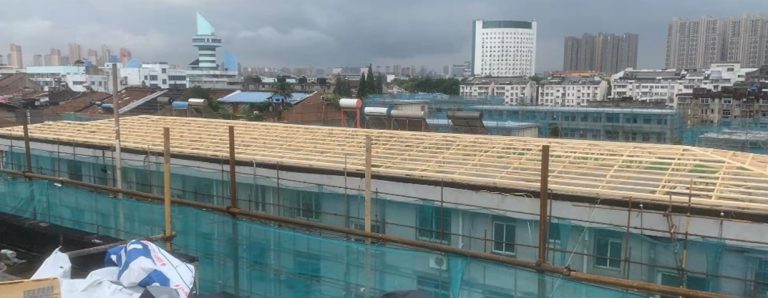New cooperation opportunities in China’s old house renovations program
In recent years, China’s rapid pace of urbanization has prompted officials to put more emphasis on the improvement of old residential complexes in metropolitan areas. Since 2015, there has been a lot of activity from the Central government promoting the comprehensive renovation of old residential areas via pilot projects and key policies and guidelines. It is clear that China is committed to making what is called an “urban renewal campaign” one of the key tasks for urbanization programs over the next ten years.
The urban renewal program mainly involves refurbishing deteriorating residential complexes built before the year 2000 in three key areas of work, namely – energy conservation upgrades, maintenance of public service functions within the residential complex, as well as adding key community additions such as medical stations, senior and infant daycares, and restaurants.
In response to the Chinese government’s actions advancing renovation initiatives, FII China and Canada Wood China jointly organized an old house renovations information session with the China Real Estate Association (CREA) in September 2020. Leveraging CREA’s extensive network of developers and partner associations to introduce Canadian wood frame construction technology, the collaboration was designed to influence prospective renovation projects that could incorporate WFC.
Since the publication of CREA’s recruitment notice last September, seven qualified projects from different regions around China had been shortlisted to go through a process of a preliminary evaluation in October, expert panel review in November, and final examination in December. After a rigorous selection process, three projects were nominated to receive support for their proposals to apply WFC in their renovation designs.

The projects included wood truss additions to Zhenjiang City’s No. 5 Yizheng Road residential complexes, infill wall and wood truss renovations of Nanjing No.13 Middle School, as well as upgrading of hutong residences in Beijing. These projects were chosen as influential and replicable, making them ideal for the potential advancement of WFC to be used in renovation initiatives across each region.

To date, the Zhenjiang project has been completed in December 2020 and was well received by local construction authorities who are pushing for more wood truss renovation projects. The Nanjing project was completed in January 2021 and prompted the Nanjing Education Bureau to consider WFC panel wall and wood truss systems for additional school renovation projects this year. The Beijing project is still undergoing a final round of detailed coordination.
Several lessons were apparent. The program closely adheres to China’s urban renewal strategy and meshes with Canada’s efforts to advance WFC technology by exploring localized solutions. It also provided first-hand experience to Chinese developers and construction companies to appreciate the versatility and scope that WFC can provide and provides encouragement to industry stakeholders. It offered a substantial opportunity to share Canadian expertise, to answer questions and resolve concerns and to create viable examples to be showcased for replication in other areas.
The initiative demonstrated that WFC is highly compatible with energy conservation and prefabrication goals, two significant priorities for construction authorities in China.
In conclusion, the three-party cooperation on old house renovations was a successful attempt that not only substantiated the MOU framework between CREA, FII China, and Canada Wood China but also represents a new and pragmatic international collaboration despite the COVID 19 epidemic.


